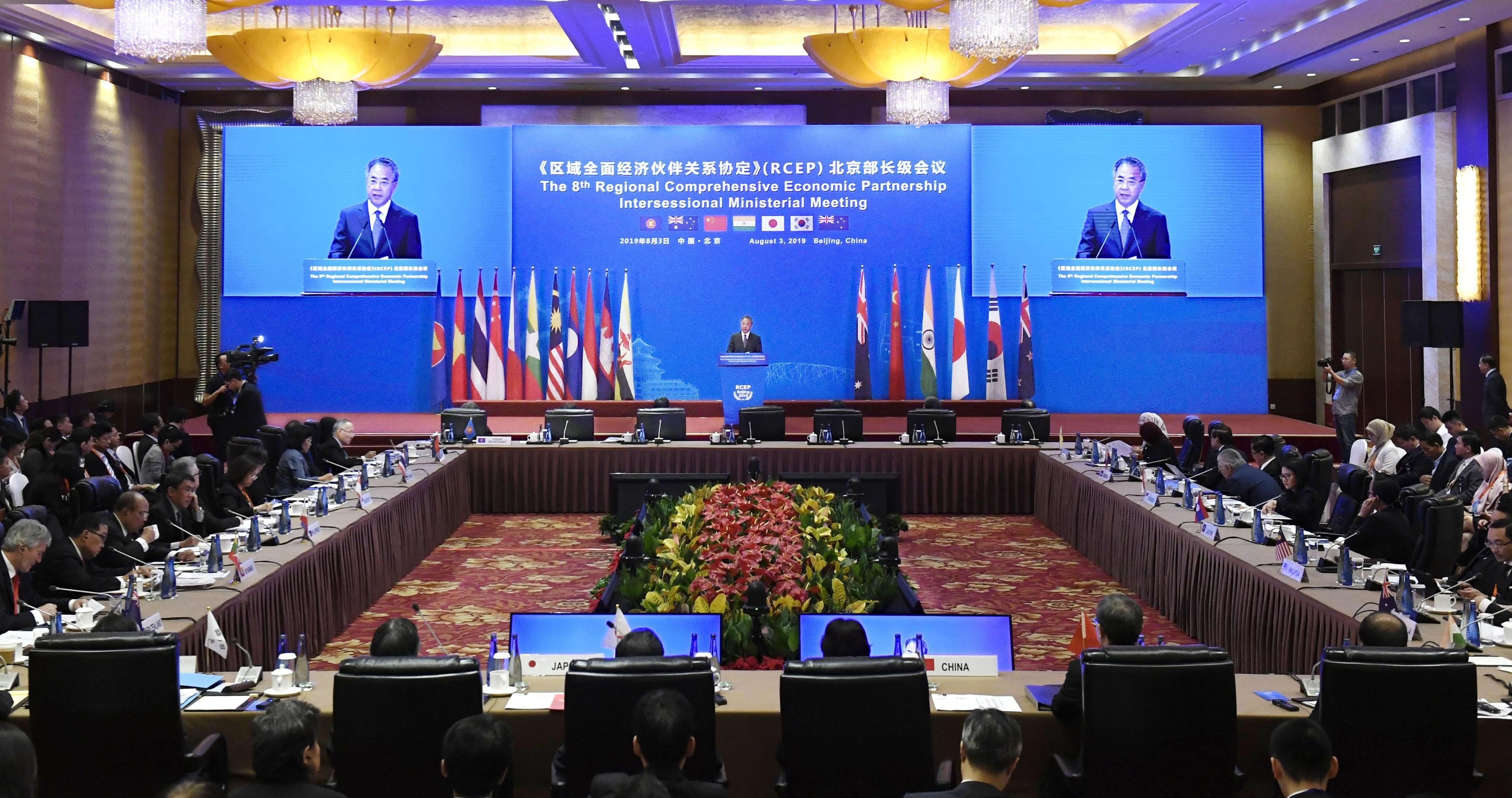
A meeting of trade ministers attempting to create the world’s largest trading bloc without the United States wrapped up in Beijing on Saturday, with China claiming further progress, though there were “very difficult” negotiations ahead.
“The meeting has made important progress in the negotiations,” according to a statement released by China’s commerce ministry after the event.
A joint statement by all 16 nations taking part in the negotiations was more circumspect.
“As growth outlook remains clouded by rising uncertainties, it is in the region’s collective interest and highest priority to conclude a modern, comprehensive, high quality and mutually beneficial RCEP in 2019, as mandated by the 16 RCEP leaders,” the joint statement said.
The ministers also urged member states “to find pragmatic and solution-oriented approaches to narrow divergence on the various remaining issues”.
The next RCEP trade negotiating committee meeting will be held in Jakarta later this month and a ministerial meeting in Bangkok in September, according to a statement from the Japanese delegation.
Chinese Vice-Premier Hu Chunhua, who spoke at the start of Saturday’s session, said more than 80 per cent of the issues in the RCEP text had been finalised, but there remained several “very difficult” issues to be resolved in the next five months to complete the pact. They included market access, rules for e-commerce, intellectual property protection and investment restrictions.
Hu called on all member countries to take more flexible positions on the question of market access to seek common ground. “Taking a step back might ruin all the previous efforts,” he said. “Perseverance will lead us to the final victory.”
As currently conceived, the RCEP would include the 10 Association of Southeast Asian Nations member states as well as China, India, Japan, South Korea, Australia and New Zealand. Its members would account for about one-third of global GDP, 40 per cent of global trade and nearly half of the world’s population. The Asean members are Indonesia, Thailand, Malaysia, Singapore, the Philippines, Vietnam, Brunei, Cambodia, Myanmar and Laos.
No comments:
Post a Comment